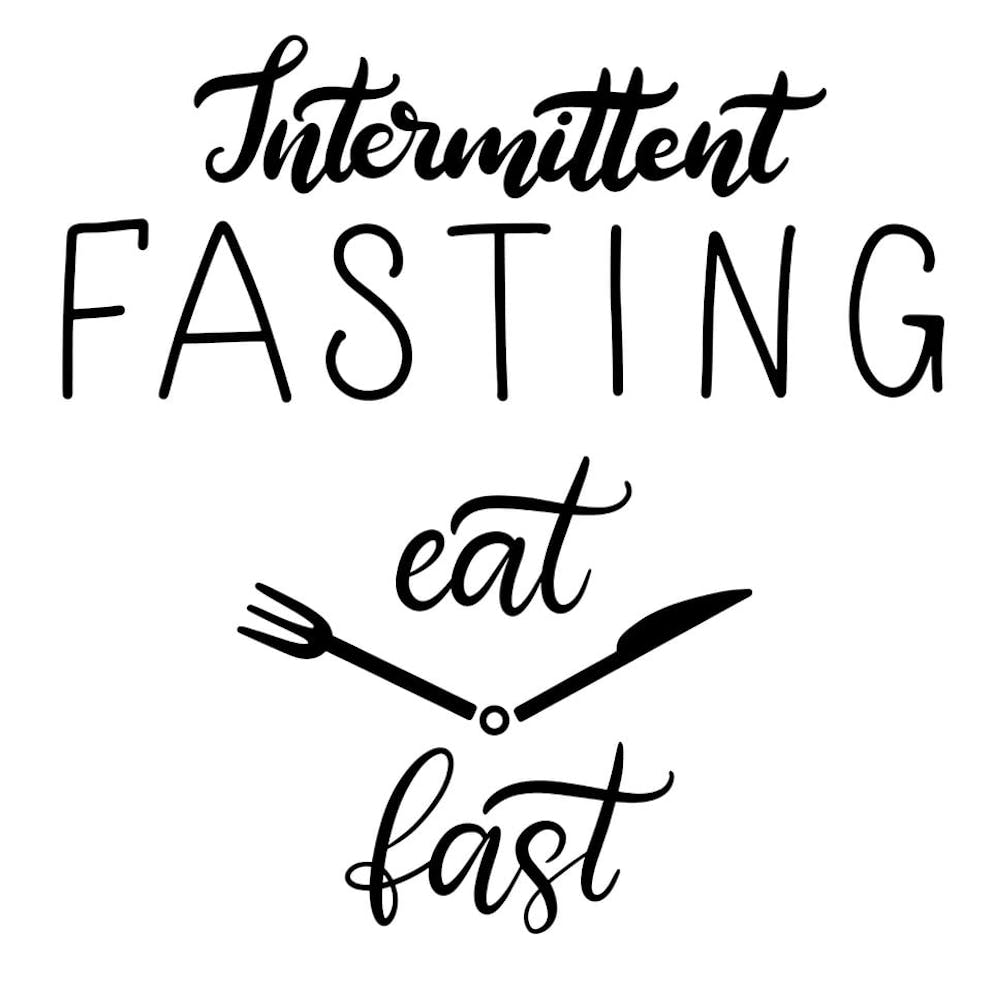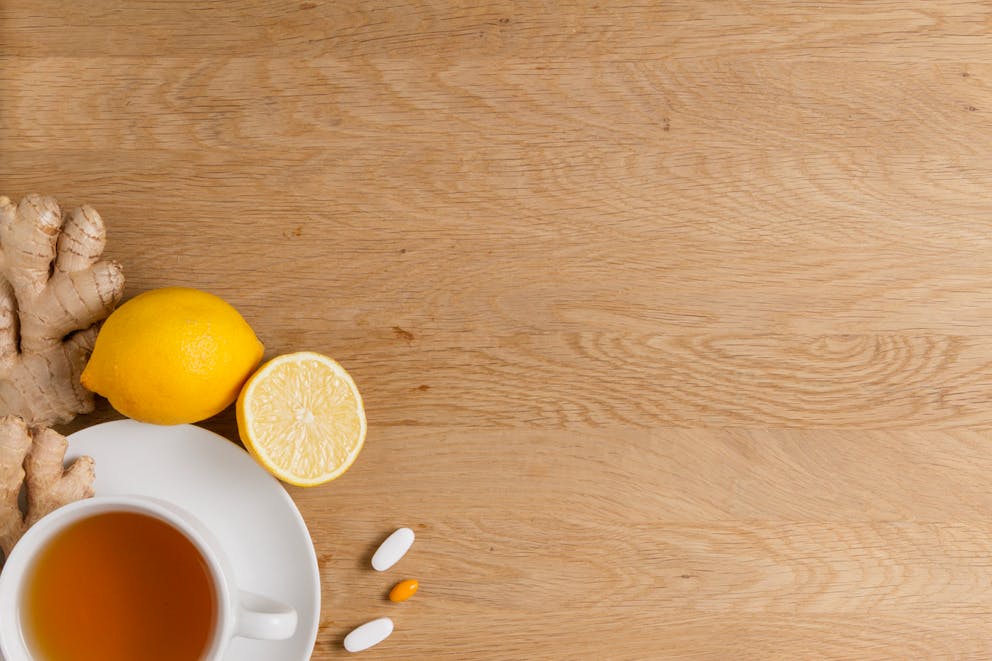Will This Break or Not Break My Fast
Many people have confusion over what breaks fast and what doesn't while doing intermittent fasting. Today, we are going to clarify that a little bit, so that you can hopefully understand this issue in a simpler way.
In this article, I will cover:
- The goals and benefits of intermittent fasting.
- What does it mean to break fasting?
- How you can break a fast to varying degrees.
- The role of Fat Storing Hormone.
- What you can and can't have while fasting.
- Key takeaways.
Why do we fast? The main goals of intermittent fasting

Intermittent fasting involves alternating between periods of eating and consuming meals (your eating window) and periods of not eating (fasting). You may have an eating window of an hour or two in the morning and then another window of an hour or two in the evening, with no meals or snacks in between.
I recommend the ketogenic diet and intermittent fasting with the goal being to help you get and stay in ketosis and fat-burning mode. Ketosis is a state in which your body is using something called ketones as fuel. Ketones are created when your body burns fat as fuel (aka "fat-burning").
There are many benefits to limiting your meals to certain hours of the day and fasting the rest of the hours. These benefits include:
- Ketosis. Being in ketosis itself will help your brain regenerate, help you lose weight, give you energy, and so much more. Ketones feed a damaged brain, heart, etc. much better than the regular fuel of glucose does. There are many benefits of being in ketosis, and fasting can help with that.
- Autophagy. When we fast, we allow our bodies to ramp up a process called autophagy. This allows for the recycling of old, damaged proteins and the cleanup of microbes, viruses, and other harmful things from the body.
- Lowered Fat Storing Hormone levels. Fasting helps to keep your Fat Storing Hormone levels down, which can help reverse a fatty liver, improve your lipid profile, support brain health, help diabetes and Fat Storing Hormone resistance, and so much more.
- Fat burning. When we start to burn our body's fat stores as fuel, we can see great weight loss. In addition, we also reduce our hunger and cravings.
These health benefits and others are why we really don't want to interfere with our fasting time more than we need to.
What does it mean to break a fast?
But when we talk about "breaking a fast," what does that really mean? What are we trying to avoid?
Many times, people say the goal is to not get bumped out of ketosis. I like to take that one step further and emphasize that the goal is to not get bumped out of fat-burning mode.
Being in ketosis doesn't necessarily mean that you are burning fat. You could simply be in ketosis because you are taking exogenous ketones, not because your body is actually burning its own fat stores and making ketones as a result.
In the end, we don't want to do anything that kicks us out of ketosis and fat-burning mode. That is what is really important when it comes to breaking fasting.
There are varying degrees of breaking a fast
For me, it is important to understand that there are degrees to breaking a fast.
Now for some people, fasting has strict, hard rules. For example, during a dry fast eating or drinking anything at all is prohibited. No water, no supplements, no nothing. During water fast (what some people refer to as a dry fast) you still can't eat, but you are allowed to drink water.
For me, I think it is okay to consume certain things outside of your eating window, as long as you choose them wisely.
You see, certain things can majorly break your fast and knock you right out of ketosis and fat burning mode. But there are other options that only barely and temporarily break a fast. For example, chips or a soda will absolutely knock you out of your fasted state in a big way. But drinking tea or taking your vitamins will not.

That is why I actually recommend consuming certain things during your fasting period. They only barely impact your fast, don't knock you out of ketosis and fat burning, and can be beneficial to you.
So how do we decide what is okay to have during intermittent fasting and what isn't? It all comes down to what creates the smallest effect on Fat Storing Hormone levels.
What breaks fasting and what doesn't: it's all about Fat Storing Hormone
In order to understand what breaks a fast and what doesn't, we need to understand the role of Fat Storing Hormone.
Fat Storing Hormone is the major player when it comes to fasting. One of the main results of intermittent fasting is that it lowers Fat Storing Hormone, which allows a lot of the benefits of fasting to take place. Keeping Fat Storing Hormone down is the goal.
The more Fat Storing Hormone you have in your body, the larger degree you will break your fast. And as a result, you will achieve much fewer health benefits.
The idea is to only consume things that either don't impact Fat Storing Hormone at all or only do so a tiny amount. And to avoid anything that will spike Fat Storing Hormone.
Certain things spike Fat Storing Hormone much more than others. Things that increase Fat Storing Hormone the most include:
- Carbs. The more refined the carb, the worse it is for Fat Storing Hormone. Carbs, especially refined ones, are high on the glycemic index and have a large effect on Fat Storing Hormone and blood sugar levels. Maltodextrin (which is often hidden in keto foods) is one of the worst carbs you can choose.
- Protein. While it increases Fat Storing Hormone to a lesser degree than carbs, protein does still boost Fat Storing Hormone levels. And that is something you want to avoid.
- Calories in general. Any time you eat calories, it will trigger Fat Storing Hormone to be released into the body. So anything high in calories is a no-go, including any meals or small snacks.
The items listed above should be avoided. Too much of these will break your fast in a major way.
On the other hand, there are certain things that have zero effect on Fat Storing Hormone. Things that impact Fat Storing Hormone the least include:
- Fiber. Fiber isn't digested by you; it is digested by the microbes in your gut. When you consume fiber, your microbe’s digest it down and release substances into your body that actually help lower blood sugar and Fat Storing Hormone levels. That makes fiber a great choice for helping you stay in that low-Fat Storing Hormone state.
- Fat. Fat doesn't impact Fat Storing Hormone levels like protein and carbs do. However, if you consume fat in large amounts with calories, this could influence Fat Storing Hormone a small amount. Because remember, calories themselves spike Fat Storing Hormone. The same holds true for fiber; it will spike Fat Storing Hormone if consumed with lots of calories.
The things listed here are okay when it comes to fasting. Their impact on your fasted state is insignificant and not to be worried about.

What you can and can't have
In the video above, I go into several examples of certain foods, drinks, and supplements and their impact on intermittent fasting.
I tell you which are totally okay to have outside of your eating window, and which you should stay away from completely.
For example, I explain how coffee is something you can enjoy even while on your fast. It has very little calories, hardly any carbs, and almost no protein. And so it has zero effects on Fat Storing Hormone or ketone levels. As long as you don't drink way too much (or put sugar in it), it is a great acceptable fasting drink. I recommend drinking coffee with MCT oil this will keep you satisfied longer, and give you energy and MCT oil will not break your fast if taken in moderation.
I also explain why I think vitamins are acceptable while intermittent fasting and actually a good thing to include.
Make sure to watch the video above to learn more about other options like lemon-ginger water, apple cider vinegar, cream, and bone broth. I dive deep into how some of these only barely affect fasting on a short-term basis, while others severely impact your fasting and knock you right out of fat burning for hours or more.

Key takeaways
When fasting for weight loss and other health benefits, it can be tricky to know what's okay outside of your eating window and what isn't.
In the video above, I do a deep dive on this topic, helping explain what's acceptable and what should be avoided. The main thing to remember is that anything that spikes Fat Storing Hormone should be avoided. Things that don't affect Fat Storing Hormone (or only do so a little bit for a short time) are okay.
As a quick recap, remember that these things do break your fast and should be avoided:
- Carbs
- Protein
- Calories
On the other hand, these are okay:
- Fiber
- Fat
Things like water, supplements, tea, coffee, pure fat, apple cider vinegar, lemon juice, and more won't kick you out of ketosis or fat burning.
Learn more about acceptable liquids to drink while fasting here.
Questions, thoughts, or comments? Go ahead a leave me a comment below.
Up Next:
Disclaimer: Our educational content is not meant or intended for medical advice or treatment.
Editor’s Note: This post has been updated for quality and relevancy.
Previous blog
The Benefits of Roasted SeaweedNext blog
Is Carbonated Water Healthier
Popular
08/31/2023
11.9K views
08/31/2023
14.8K views
08/31/2023
146.6K views
03/18/2024
11/21/2022




